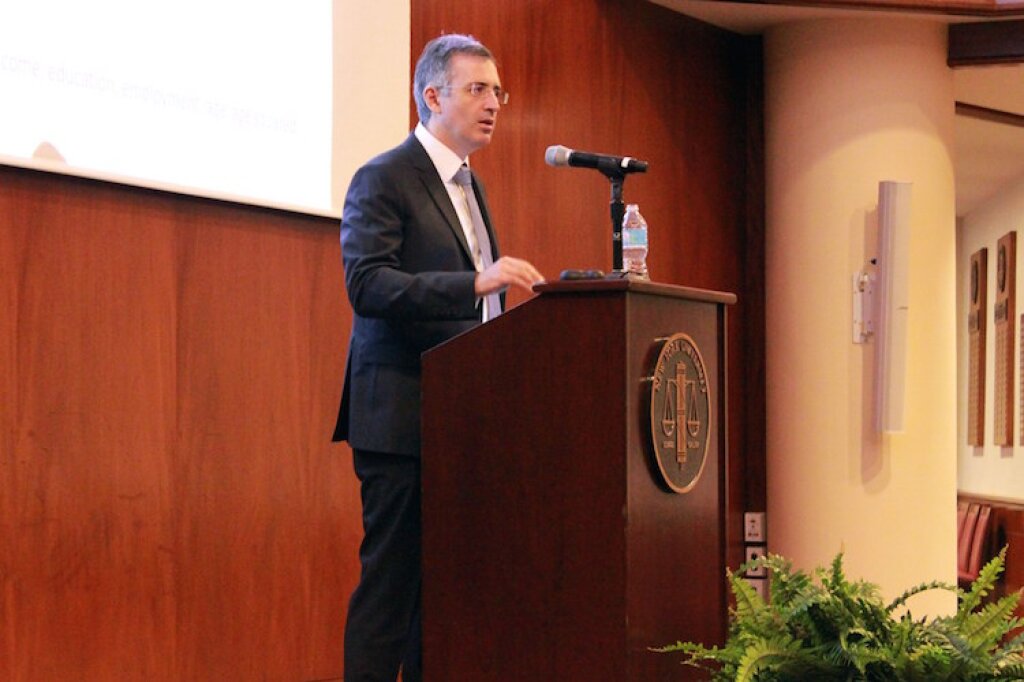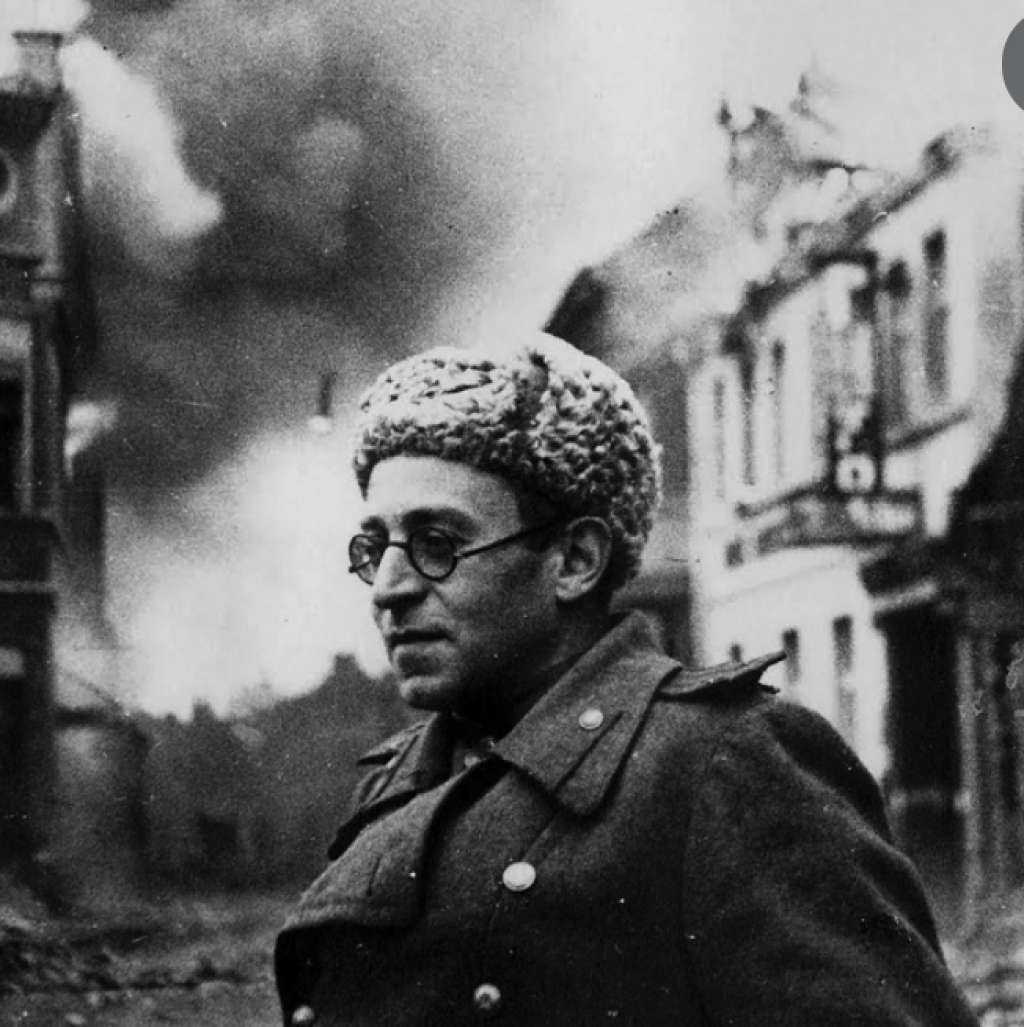On Friday, February 15, the Jordan Center once again had the honor of hosting associate professor and historian Anna Krylova, this time for a colloquium on her newest research project: “Toward a History of the ‘Soviet’: The Franco Lingua of Soviet Modernity.” Not disregarding general Soviet history, Krylova’s focus is set on investigating how terms such as “Marxist,” “Soviet,” and “modernity” changed their connotations and meanings in Soviet society from the early 1920s to the late 1930s. Her work thus resonates within a vast range of scholarly disciplines.
Friday’s discussion touched upon the historic, literary, social, and linguistic aspects of Krylova’s project. Engaging with the discussion participants, Krylova strongly argued that her work is not simply another macrostructural chronology of Soviet history, but rather an analysis of the verbal foundation on which such a history has been and is being written. Krylova rejects terms such as “frozen” vs “dynamic” to explain the differences between the1920s and the late 1930s, and instead sets out to prove how cultural terms played an important part in creating new social identities and a new Soviet reality. While a lot of research has tended to turn to the writings of Marx, Hegel, and early Bolshevik literature to find the origin and definition of Soviet terminology, Krylova pointed out that language itself was a dynamic entity crucial in making the shift from a Marxist to a Soviet discourse. She thereby creates an opposition between a Bolshevik and a Soviet paradigm. Although these paradigms were utilizing a lot of the same terminology in describing the relationship between the collective and the individual, their significance differs. The term “Soviet citizens,” for instance, which was common in the 1920s had a different meaning from the social category “Soviet people,” which came to dominate a decade later. While the former signified the many people living in the realm of the Soviet Union, the latter defined a, by then, specific and solidified cultural identity.
During the discussion the term “polyphony” was introduced as a possible way of defining the linguistic situation in the period Krylova is investigating. Not everyone was able to follow the many terminological reformations that took place from the 1920s to the 1930s. Older generations were in fact at risk of missing out on some of the new meanings of the terms they used.
Krylova’s research indeed introduces new perspectives, as she goes to the core of human interaction: the words themselves. Knowing how to approach the same word differently depending on its historical context is indeed an important skill for scholars of all disciplines. Friday’s colloquium was therefore an interesting discussion on historical discourse, but it also touched upon the importance of, and difficulties involved with interpreting a cultural-historical narrative.



